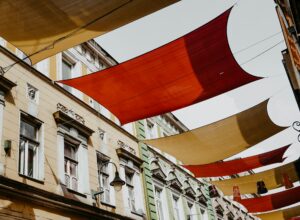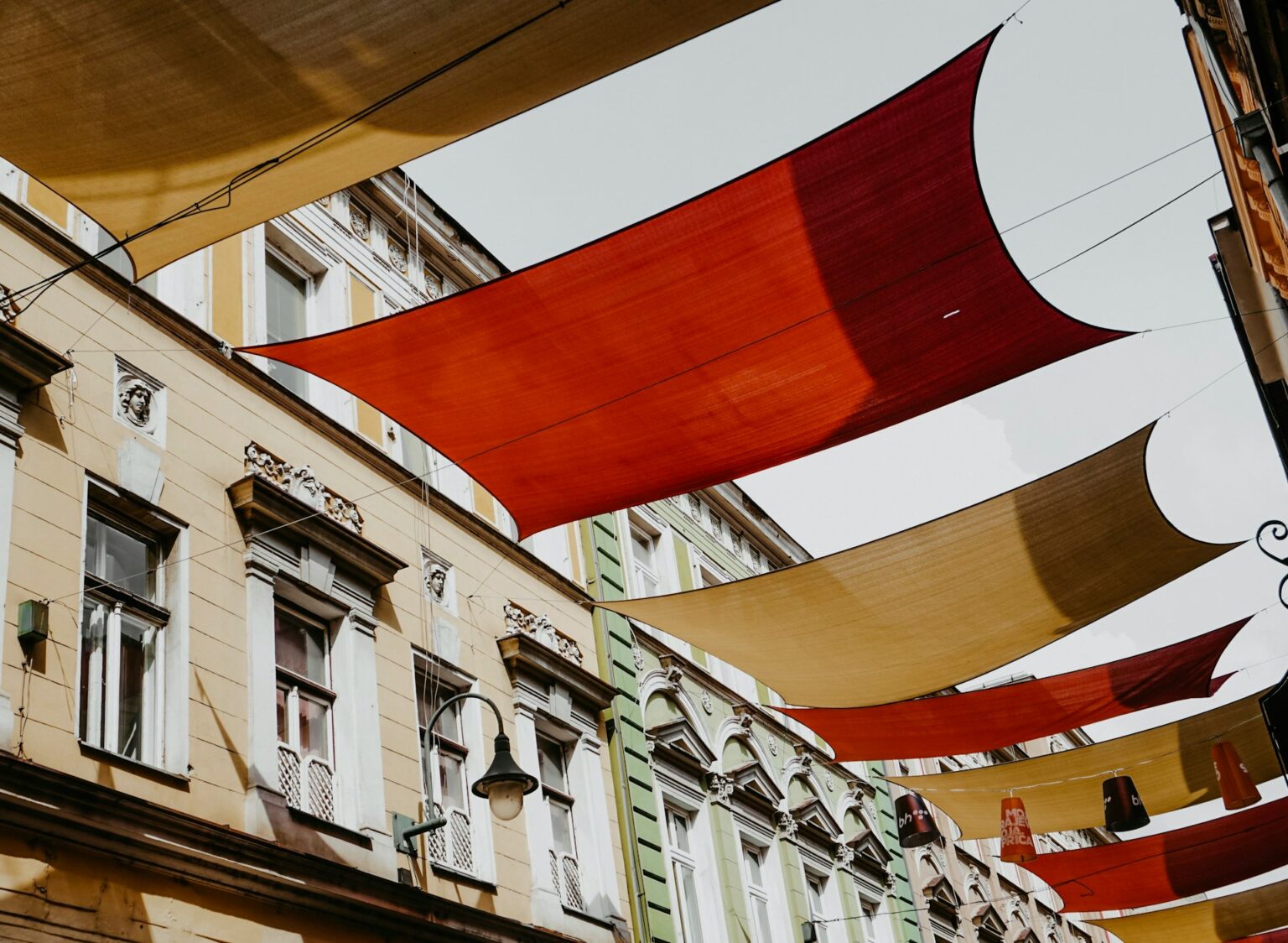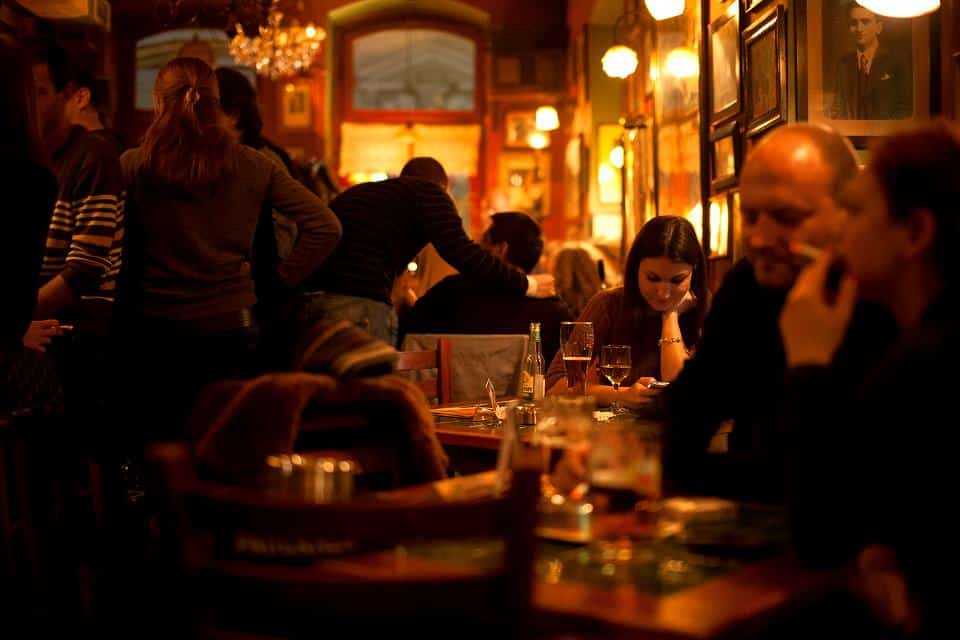Everything You Need to Know about the Western Balkans.
Our series of cultural How-tos begins with the Western part of the Balkans. What do we mean when we talk about the Balkans? However, there is no universal consensus on the components of the Balkan region; most commonly, the Balkans (a name that comes from the Turkish word for ‘mountain’) include Albania, Bosnia and Herzegovina, Bulgaria, Croatia, Kosovo, Montenegro, North Macedonia, Romania, Serbia, and Slovenia – though Slovenia is often seen as more Central European, with only a small part touching the Balkan Peninsula. Parts of Turkey and Greece are also considered part of the region.
The Western Balkans are where the East meets the West, and the blend of cultures is felt in most aspects of life. Uncover this culturally diverse region, shaped by Ottoman, Austro-Hungarian, Roman, and Byzantine influences and uncover its rich history and intertwined traditions. Let’s see what you need to be prepared for when heading to the Western Balkans!
We put together list-like guidelines for each country separately, with useful things to know, peculiarities, and insights from locals. Enjoy!
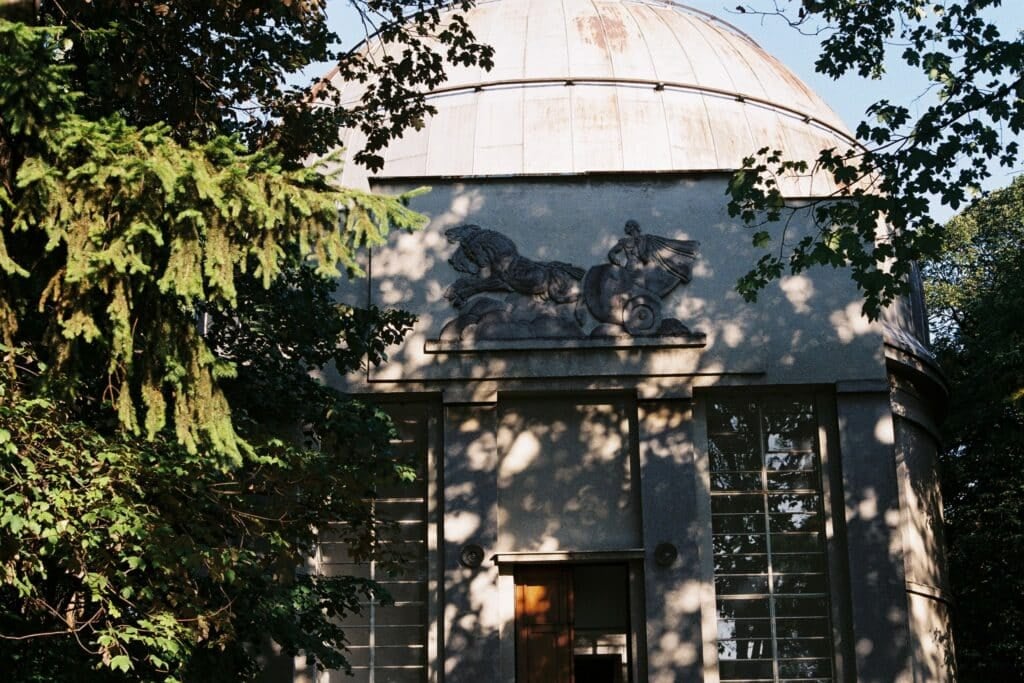
General Guidelines | Mentality & Cultural Insights
- Coffee is a ritual – It varies a lot in different regions. To get a sense of it, all you need to try out is to sit, enjoy, and connect with locals.
- Hospitality is strong. You will be offered rakia or coffee almost everywhere. Don’t be shy to accept it graciously! Remember to return if the occasion lets you.
- Be patient with transportation! Schedules are often inaccurate. Expect some delays. If something goes off-track, try not to take it too seriously. Learn to laugh about minor detours while travelling.
- Travel slow, be flexible! Loose plans work much better here. Plus, taking your time helps you pick up the local pace.
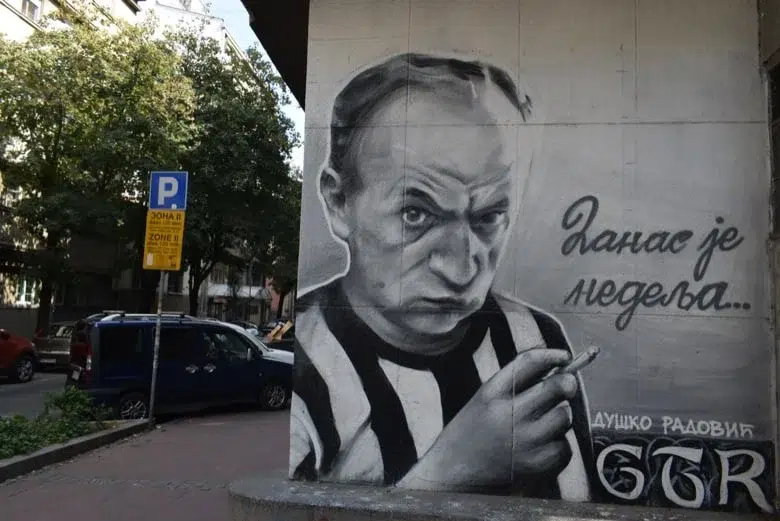
Driving in the Western Balkans
- Road quality varies a lot. Highways are generally good, but rural roads can be rough.
- Driving styles tend to be somewhat aggressive. Be prepared for fast, unpredictable drivers!
- Beware of potholes and mountain roads. Drive cautiously, especially in Albania, Bosnia, Serbia and Montenegro.
- Driving on coastal roads is breathtaking but can be dangerous – sharp turns and fast drivers.
- Public transport can be chaotic but cheap. Trams and buses are often late in most Western Balkan countries (not so much in Slovenia). Taxis are affordable alternatives.
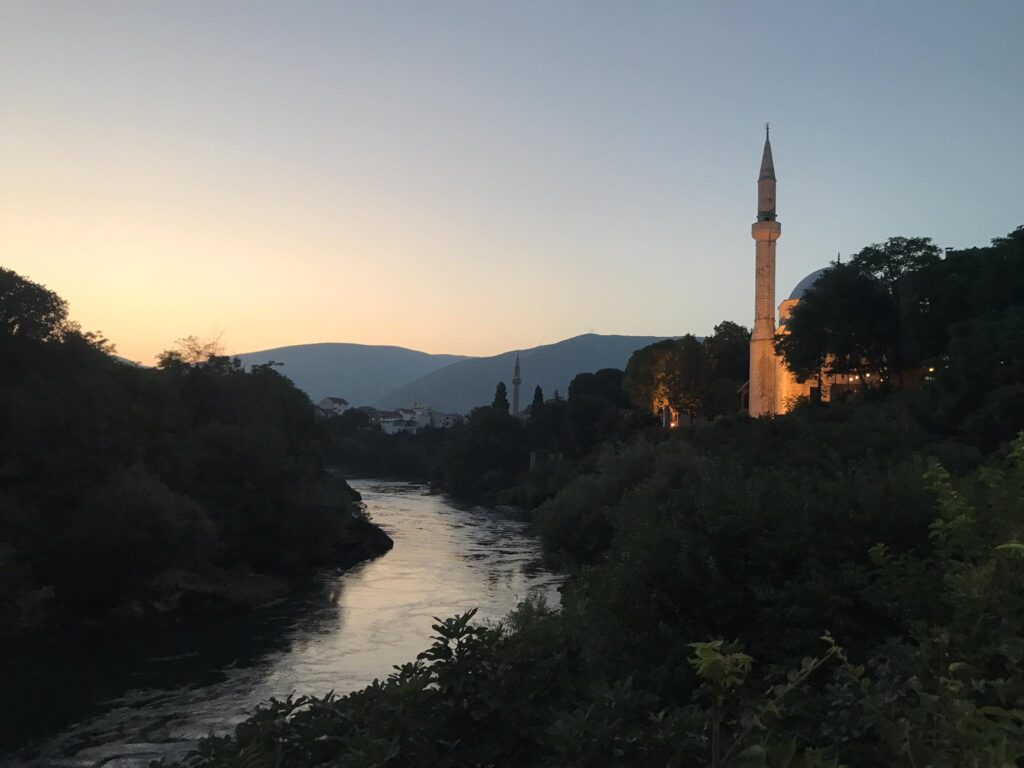
List of Essentials to Prepare
- Local SIM or eSIM – Roaming can be expensive, in most cases best is to buy a local SIM for cheap data, unless you have an extensive international deal.
- Power adapter (Type C, F) – It’s the same as most of Europe.
- Offline maps & translation apps – Some areas lack signal (many prefer Maps.me over Google Maps; if you use the latter one, use the satellite feature instead of the road view to see in real life what upcoming roads look like).
- Mosquito repellent – Especially for summer near lakes and rivers.
- Small gifts – If visiting locals, it’s polite to bring a gift as a sign of appreciation.
- Travel insurance – This can save you from some stressful moments.
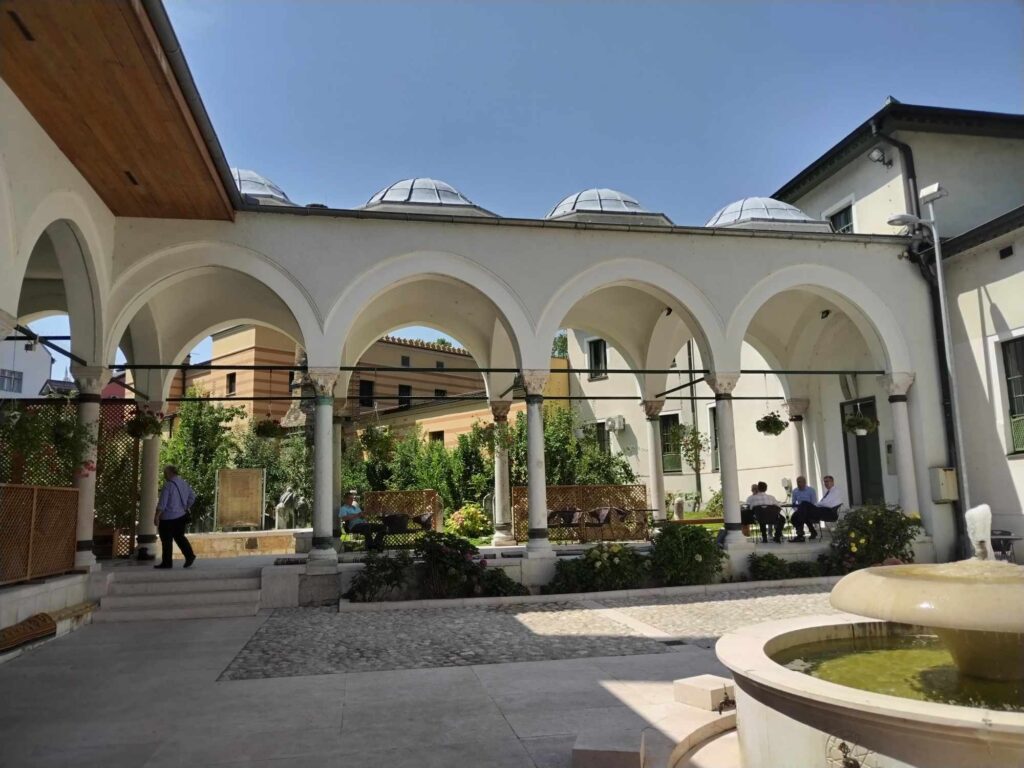
Dress Code
- In cities, it’s all relaxed, and even shorts and tank tops are fine, too.
- Cover shoulders & knees when visiting churches or mosques.
- Avoid wearing swimsuits outside beach areas, it can come off as disrespectful.
Food & Drink Must-Tries
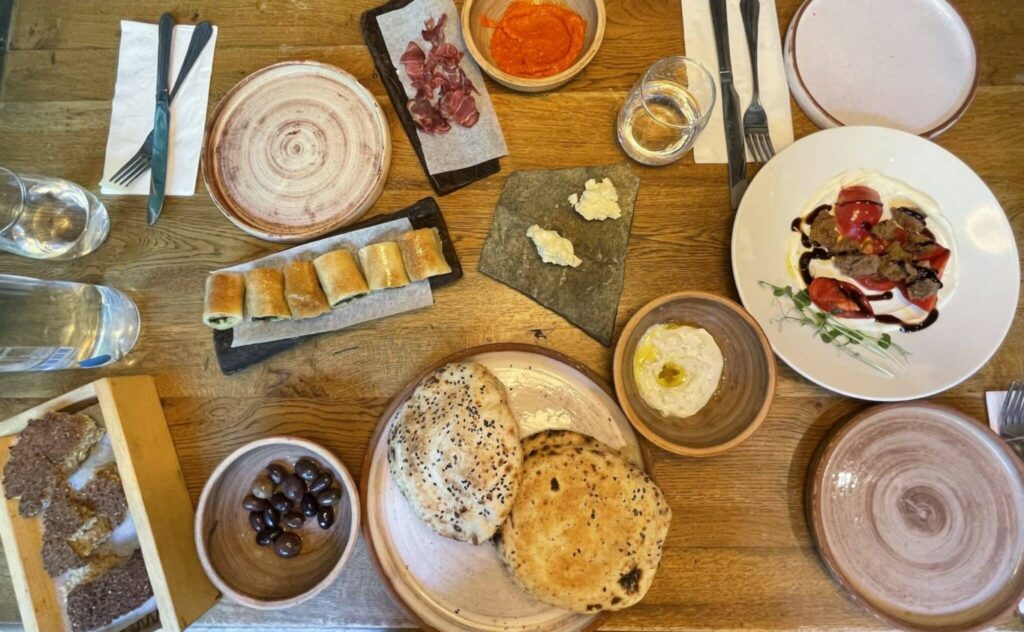
- Burek – Flaky pastry with cheese, meat, or potatoes.
- Ćevapi – Grilled minced meat sausages.
- Ajvar – A delicious red pepper spread.
- Sarma – Stuffed cabbage rolls.
- Rakia – Strong fruit spirit. Unlike most would guess, locals sip slowly. Rakija is a national drink in most Balkan countries with their own variations, expect to be offered often. It’s used from celebrations to curing colds.
- Meat-heavy dishes are very widespread all around the Western Balkans, especially in Bosnia, Albania, and Serbia.
- One of our Belgrade Spotters, Dusan, referred to veggie options in Serbia as “If you are a vegetarian/vegan, and not in a bigger city, be prepared to have salads, potatoes and mostly tasteless grilled veggies at best in restaurants in smaller towns. This can prove untrue in some places, but for the big part, it can be exactly the truth.”
* This is just a brief highlight, there is a long list of excellent, characteristic foods. Take your time to find the local ones!
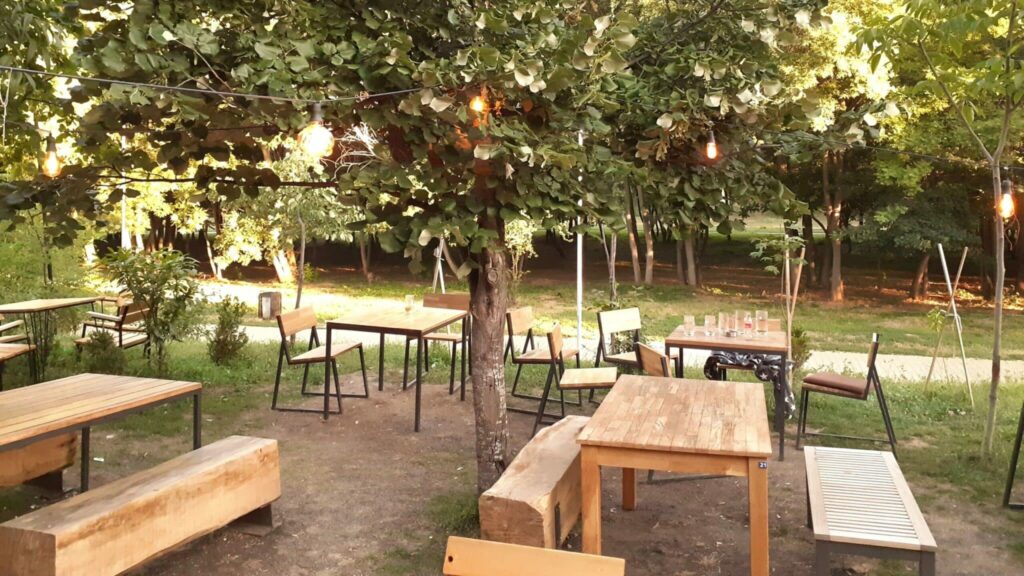
Practical Travel Tips
- Tap water is safe in most places, but in Albania, and Kosovo, the best is to stick to bottled water. Tap water is, however, excellent in Croatia, one of the cleanest in Europe.
- Some meds need a prescription that you could get easily back home. It can come in handy if you bring essentials with you.
- Cash is king! Many places don’t accept cards, so always have some cash.
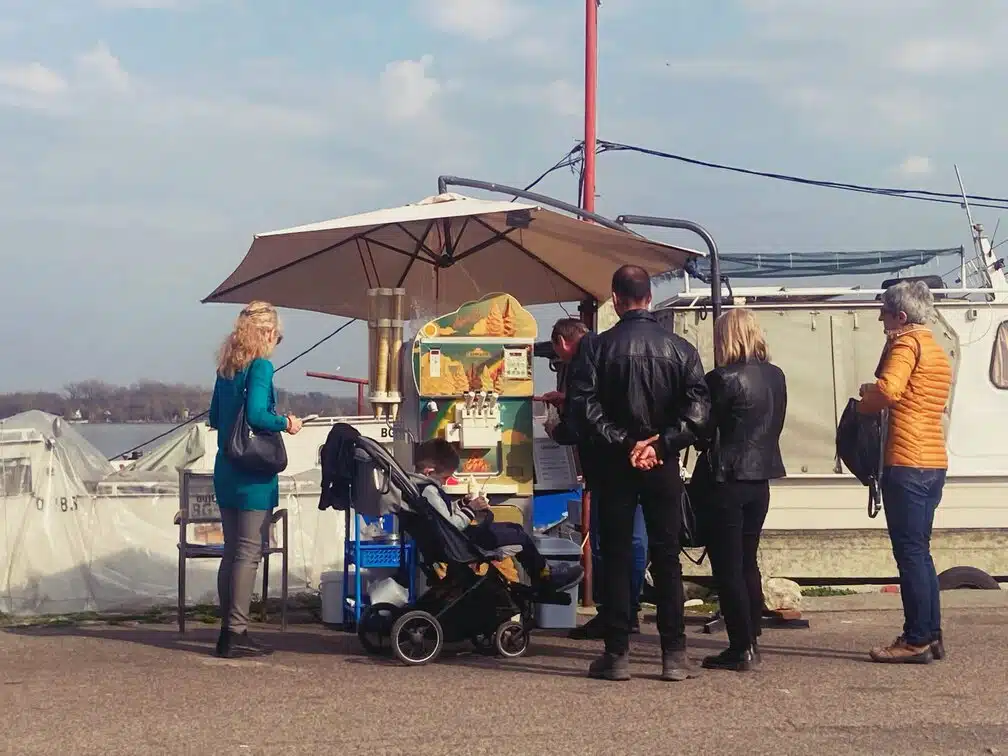
Culture
- “Kafa and kafana culture” – Drinking coffee, often lasting for full hours, is a huge social event, and traditional kafanas (coffee houses) are highly honoured places, especially in Bosnia, Kosovo and Albania.
- Hospitality is a big deal in the Western Balkans, primarily in Albania and North Macedonia. If someone invites you in, don’t be surprised if you get offered coffee, rakija.
- Smoking culture is still rather common, especially in Bosnia Herzegovina and Albania. You can check regulations or look for places with separate smoking areas. Learn more about it in our previous article.
- Tipping 10% for good service is common, it is sort of expected but not mandatory.
Many of the Balkan countries have an interesting, thriving art, literature, music, and theatre-film scene. "...art is a necessity and outlet in challenging times." – Belgrade Spotter, Dusan.
Border Crossings
- Passport is required within many Balkan countries.
- Serbia-Kosovo route! Note that you can enter Kosovo from Serbia, but not the other way around, so plan your trip accordingly.
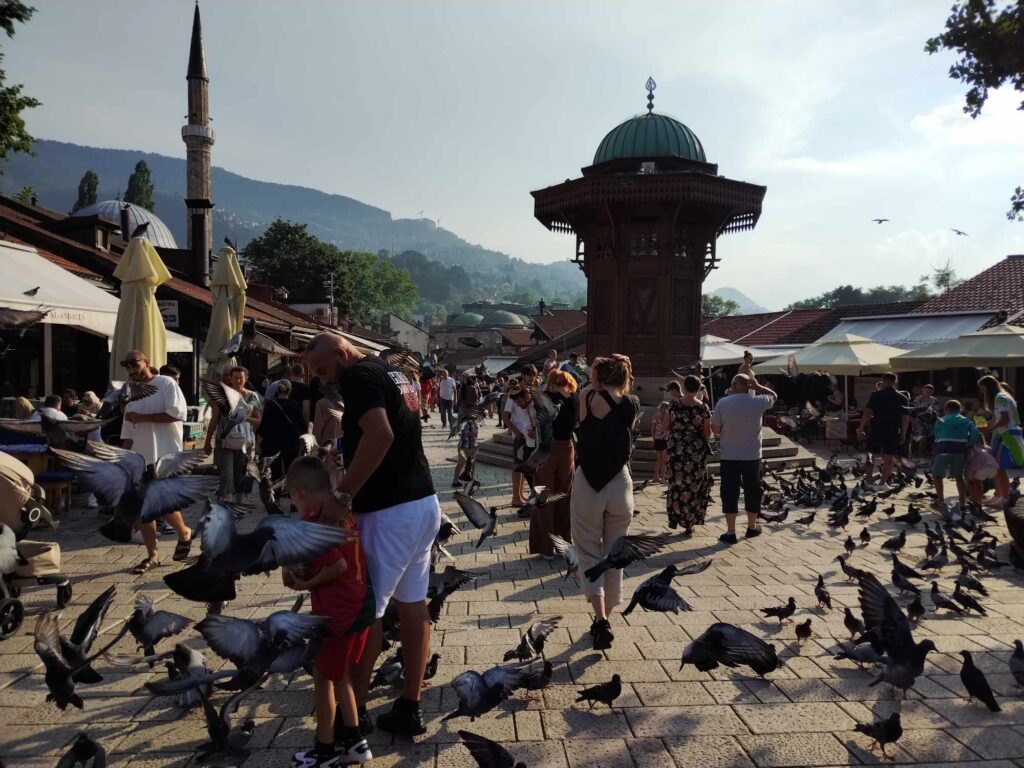
🇦🇱 Albania
- “Xhiro” – The Evening Walk – Albanians take leisurely evening strolls through town, and it’s a huge social activity.
- Don’t get confused by head gestures. Albanians shake their heads for “yes” and nod for “no” opposite to most countries!
- Avoid bringing up Enver Hoxha too casually – Older generations have strong opinions about the former communist leader.
- Bunkers everywhere! There are 100,000+ old Communist-era bunkers scattered across the country.
Practical:
- Currency: Albanian Lek (ALL), Euros are sometimes accepted.
- In the EU, not Schengen
- Many shops close between 2 PM and 5 PM, especially in smaller towns.
- Tirana has almost no traffic lights – crossing the street is an adventure.
Tirana Spotters have shared tons of special places, such as nature getaways, local restaurants and historical monuments and insights. Dive into the spots here!
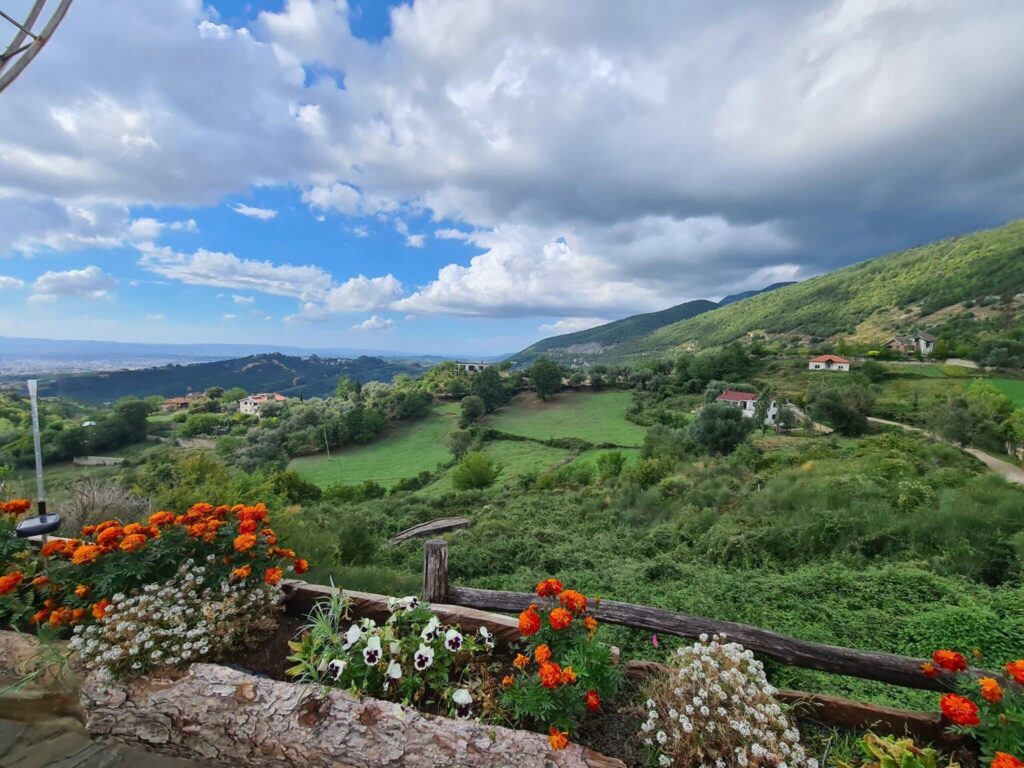
🇧🇦 Bosnia and Herzegovina
- Three presidents rule the country due to ethnic divisions.
- People are very friendly but also sceptical of outsiders at first.
- Punctuality is flexible, people are often late to social meetings.
- Be careful with talking about the war or politics, it can be a very a sensitive topic here.
Practical:
- Currency: Convertible Mark (BAM), but Euros are often accepted.
- Not in the EU
- Shops close on Sundays, especially outside Sarajevo.
Find locally selected spots in Sarajevo! Tea places, local bars and cafés, and unique architecture await!
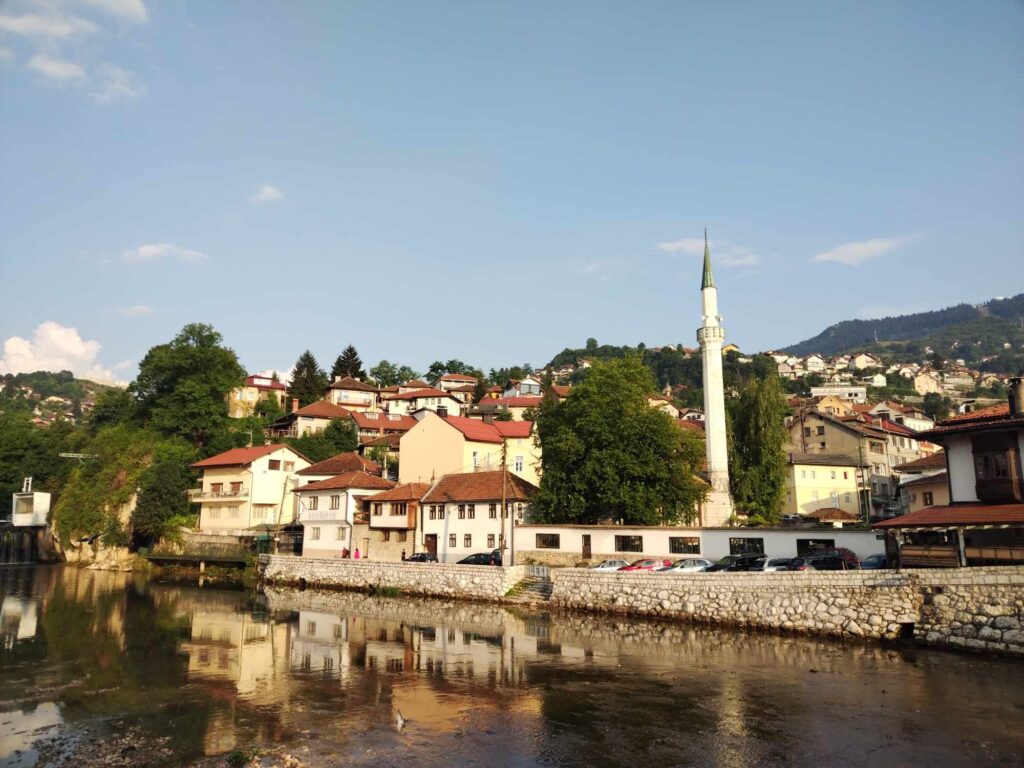
🇭🇷 Croatia
- People dress neatly and modestly, even for casual events – Looking stylish is important, even for everyday activities.
- “Pomalo” mentality – Life is taken slowly, relaxedly, especially on the coast.
- Don’t compare Croatia and Serbia.
- The coast and inland are very different – culturally, linguistically, and even politically.
- Swearing is common and not always offensive.
Practical:
- Currency: Euro (EUR)
- EU Status: In the EU and Schengen
- On the Coast – Many shops close in the afternoon, especially in Dalmatian towns.
- Tourist areas are expensive – locals struggle with high summer prices.
Ready to discover Zagreb through the lens of locals? Find selected bars, markets, cafés, fried fish spots and more here.
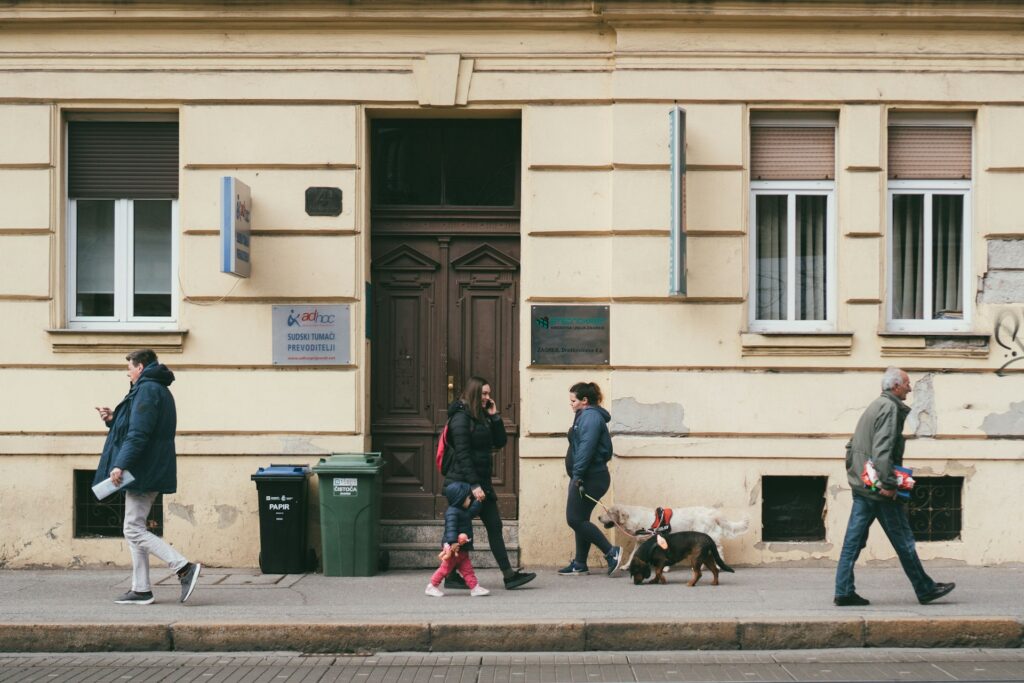
🇽🇰 Kosovo
- Fastest Internet in the Balkans – Surprisingly, Kosovo has excellent internet speed.
- The youngest country in Europe (2008 independence) – pride in independence is huge.
- Political discussions about Serbia can be sensitive, so it might be better to avoid it.
Practical:
- Currency: Euro, even though Kosovo isn’t in the EU.
- Not in the EU
- Shops stay open late – Unlike many Balkan countries, many stores operate until late evening.
Find a special local selection of spots in Prishtina here, such as outdoor bars, top restaurants, locally made gifts and much more.
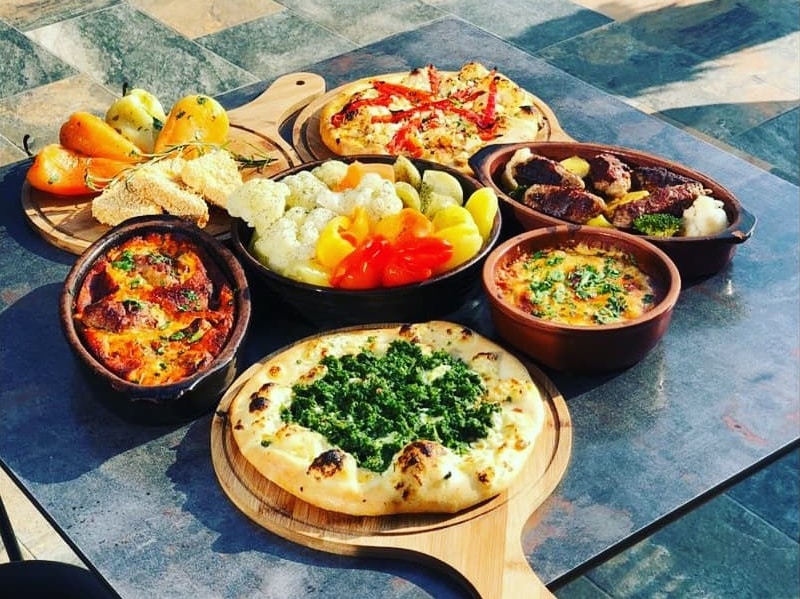
🇲🇪 Montenegro
- Tourism is the main industry – expect crowded coastal towns in summer.
- The Bay of Kotor is not a fjord! – locals will correct you (it’s a ria).
- People tend to drive aggressively – speeding and risky overtaking are common.
- Montenegrins are proud of their history – they resisted Ottoman rule for centuries.
Practical: Montenegro uses the Euro as its currency, even though it is not part of the EU.
Check out our handpicked spots in Podgorica! Find socialist architecture, local stores and bars!
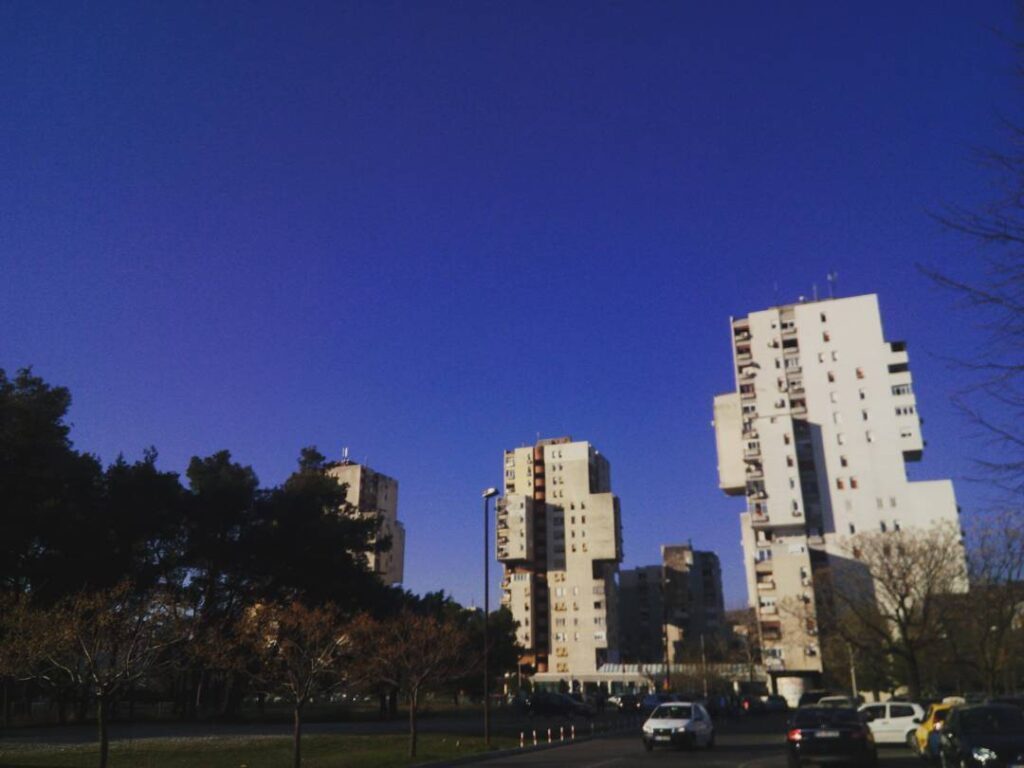
🇲🇰 North Macedonia
- People love music and dancing – traditional folk music is very popular.
- Skopje has a mix of brutalist Communist buildings and brand-new monuments – quirky city planning.
- Ohrid is the cultural gem – a must-visit UNESCO town with ancient history.
- Don’t get into the “Macedonia vs. Greece” name debate – It’s a sensitive topic.
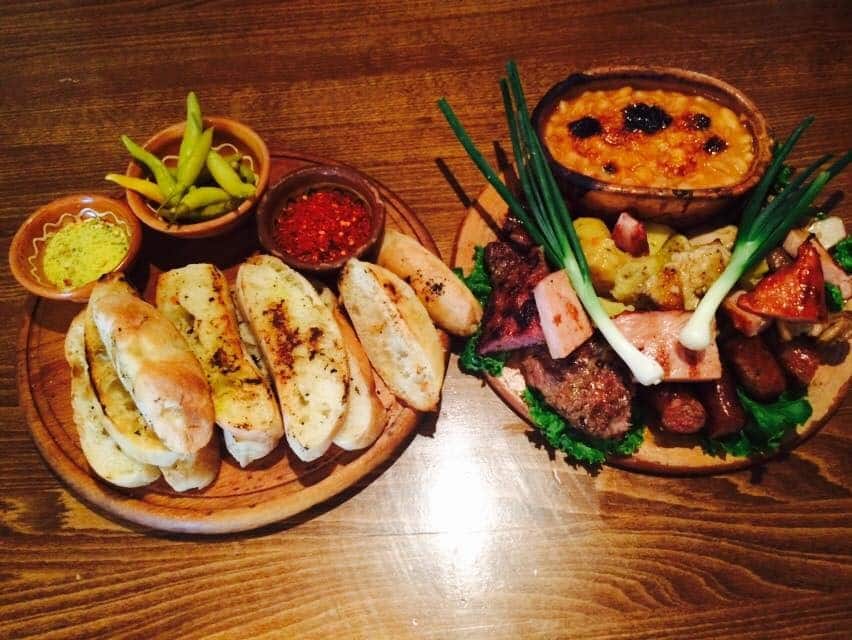
Practical:
- Currency: Macedonian Denar (MKD)
- Not in the EU
- Shops close early – Many places close by 8 PM, especially in smaller towns. Afternoon breaks are common in rural areas.
Get recommendations from locals about Skopje here! Discover local bookshops, traditional restaurants and authentic kafanas.
🇷🇸 Serbia
- Multiculturalism is having a renaissance in bigger cities
- “Kafana” culture – Eating, drinking, and listening to live music in kafanas is a national pastime.
- Most people are very eager to speak with foreigners. So, if you have any questions, instead of Googling or asking AI, feel free to reach out to any passerby. Also, don’t be surprised to be greeted in villages!
- Belgrade nightlife is legendary – floating clubs (“splavovi”).
- Serbs are very patriotic, football, history, and culture are taken seriously.
- “Inat” is something often mentioned as specific for the national psyche in Serbia. It means proud defiance, often against odds, sometimes self-damaging — like boldly resisting danger despite the consequences.
- People love to debate politics and history – But avoid topics related to Kosovo or NATO as a foreigner.
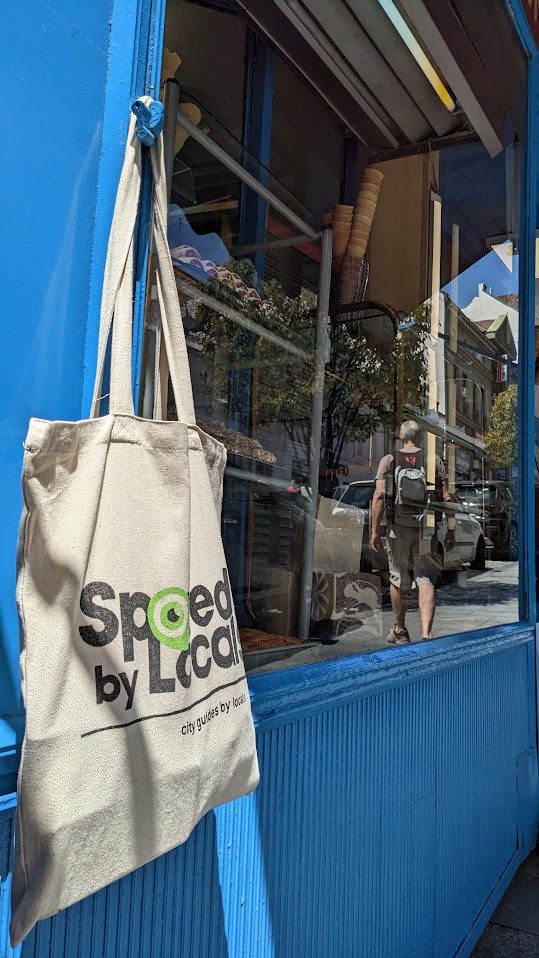
Practical:
- Currency: Serbian Dinar (RSD)
- Not in the EU
"Most of the supermarkets, bookstores, even clothes stores and similar are usually open in the evening, which is not the case as often in Western Europe. As some data proves, people in Serbia work more than people in most of Europe." - insights from Dusan.
For more info on the local scene, have a better look at our spots in Belgrade! Learn about its history, underground art scene, local dishes, family-run shops and more!
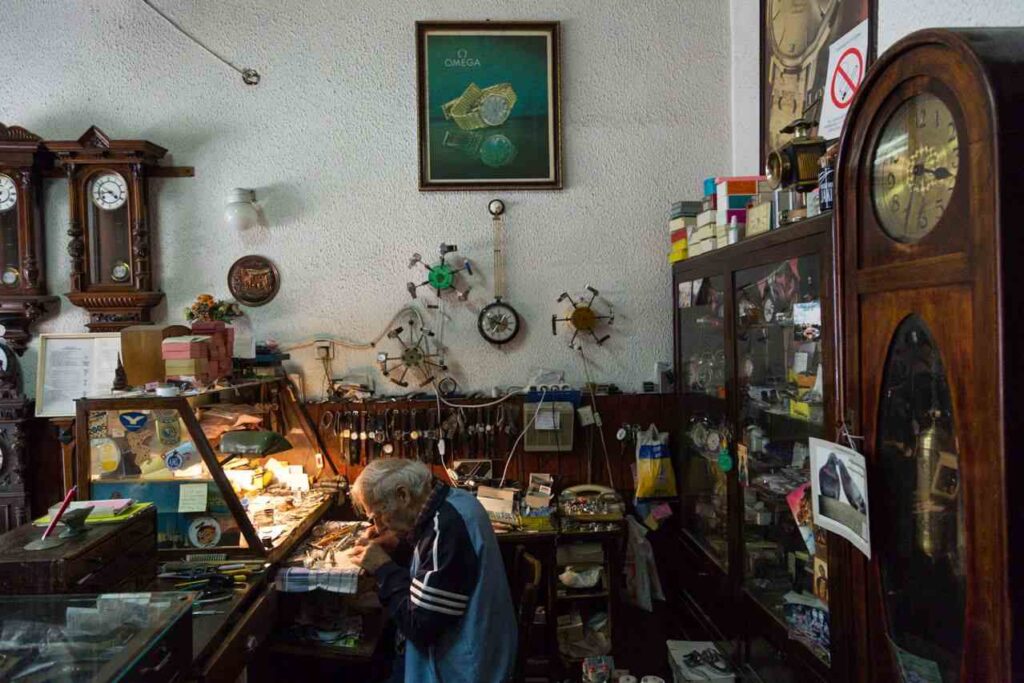
🇸🇮 Slovenia
- One of the cleanest and greenest countries in Europe – people take environmental responsibility seriously.
- Slovenians love hiking and nature – outdoor activities are a big part of life.
- Tipping is not expected but appreciated (rounding up the bill is common).
- People speak Slovene, but many also know English, German, or Italian.
- Be careful with political discussions about Yugoslavia; some people prefer not to talk about the past.
Practical:
- Currency: Euro (EUR)
- In the EU and Schengen
- Sunday is a rest day; many shops are closed
- Traffic fines are high, so obey speed limits and road rules strictly.
Find local tips for Ljubljana here. Including great views, unique cafés and the best burek in town!
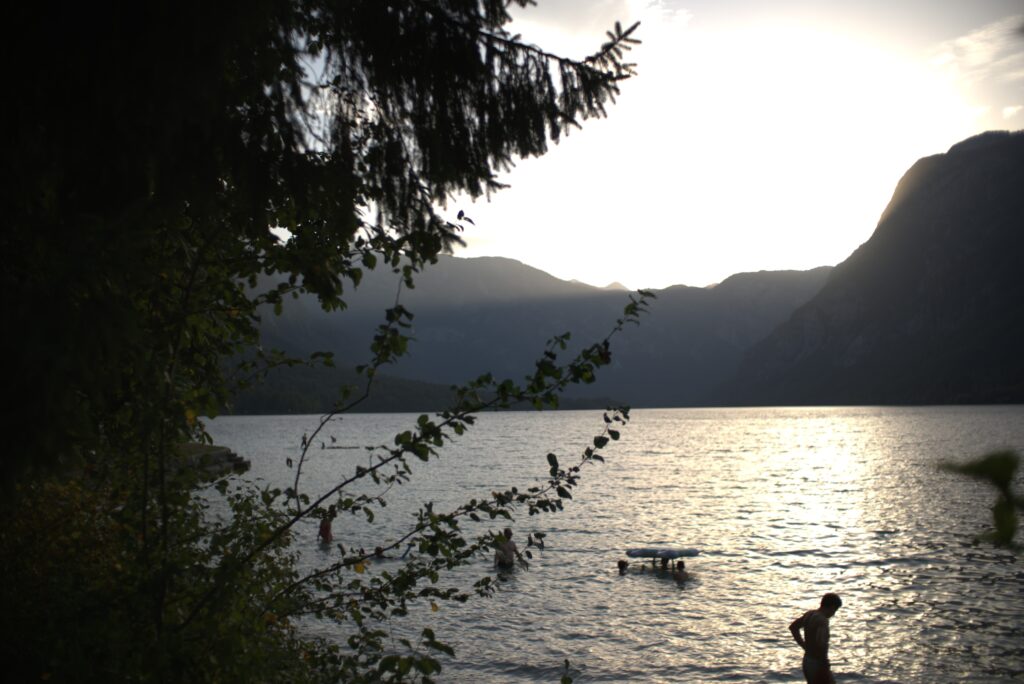
Final Advises
Here I could list everything that is meant by travelling slow. Above all, consider the following aspects:
- Learn some local phrases, it helps a lot with interactions.
- Join a local walking tour. It’s a great way to learn history from locals. If you have a soft spot for history, read about the Balkans; there is a lot to learn about its complex history.
- Visit places recommended by locals.
- When to visit? Choose shoulder seasons if you can, spring and fall are often more affordable and sustainable choices. Besides endless opportunities these seasons offer, you are likely to find a variety of cultural events taking place.
Tips about Bulgaria, Romania, Greece and Turkey (Thrace) are coming in the upcoming article about the Southern and Eastern Balkans. Stay tuned!
